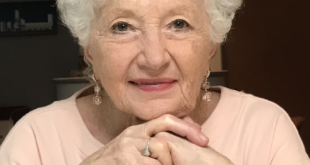Maladanza is a Spanish group whose musical repertoire goes back a thousands years, encompassing the music of the Jews before they were expelled in the late 15th century.
Playing on instruments they crafted themselves, Maladanza’s work is a labour of love. The group recognise that their work is not just about the music, but also contributes to recuperating Spanish culture and history.
Rafael Puy, “Maladanza”:
“Well, Maladanza is a group that is dedicated to the interpretation of ancient music that spans from the 11th to the 16th century, and primarily Sephardic music. We are a group that formed in 1999 and we have now spent 14 years making music. It is a style that we all like and want to perform so that people here in Spain can get to know it, because often there is a lack of knowledge about these types of music. It’s a style that was passed down to us through the oral tradition, songs that were passed down from father to son, mother to daughter.”
Much of Jewish Spain today is hidden just out of plain view. Ancient synagogues were converted into cathedrals and require a keen eye to see the signs that point to Jewish origins. The same can be said of the music which was taken out of Spain so long ago by the fleeing Sephardic communities.
Rafael Puy, “Maladanza”:
“We generally work with material that was collected by Susanna Weich-Shahak, who is a Sephardic musicologist from Argentina. She carried out a project to compile these works by going around the Mediterranean Basin where there were disperse Sephardic communities. Above all in Turkey, Greece, Morocco, Tunisia, and in what was once the Republic of Macedonia, in those Jewish Quarters where they truly had an impressive way of life.”
The story behind the recuperation of the instruments is as compelling as the discovery of the songs. Using contemporary sources such as medieval architecture and documentation to base their designs on, the group were able to craft the instruments by hand and reunite them with the songs for the first time in over half a millennia.
Rafael Puy, “Maladanza”:
“We play old music with the instruments from the period. Only very few examples survive today of examples of instruments from the 12th, 13th and 14th century. So we had to focus on iconography to be able to recreate these instruments. The iconography appears fundamentally on the entrances of Romanesque churches and in medieval manuscripts. These are the sources we had to use in order to create instruments from that time.”
There remains a great interest in Spain to recover its Jewish history, and the audience here recognise the honour of being among the first to hear these songs played together in centuries.
Trini Sanz, Spectator:
“Well, ever since I heard about these kinds of Jewish events I normally try to come every year. We love to go to as many concerts as we can. It is our culture and I think that we have to get it back and not lose it.”
The songs of Maladanza are as much historical documents as they are musical compositions, with stories around them which are as beautiful as the songs themselves.
Paul Walsh, JN1, Spain
 eSefarad Noticias del Mundo Sefaradi
eSefarad Noticias del Mundo Sefaradi



Hola, creo que la primera cosa que Maladanza debería de hacer es dejar de promulgar el mito de la «música medieval sefardí». Como se ha escrito muchísimas veces – y no solamente por mí – incluso cuando las letras de las canciones son muy antiguas, no se puede decir lo mismo de las melodías, que generalmente son de la diáspora sefardí. Además, un alto porcentaje de las canciones más populares, más cantadas, no tienen tampoco las letras muy antiguas. Esto no es noticia – lo han estudiado José Manuel Pedrosa, la misma Sshoshana Weich-shahak, que mencionan, e otros.
Además, Shoshana sí que nació en Argentina, pero me parece curioso decir que ella es «from Argentina» para identificarla. Es israelí. Se fue a Israel cuando era joven, y ha hecho todo su trabajo con la cultura sefardí en Israel (aunque tambien ha hecho trabajos importantes, menos conocidos, sobre la música indigena de Argentina.) En España, la muy triste verdad es que tambien hay mucho sentimiento anti-Israel- no oficial. Sí,sí, ya lo sé, existe el Centro Sefarad-Israel, existen mil actividades sobre la cultura sefardí y también sobre otras culturas judías , existe la Red de Juderías etc etc. Pero tambien existe – a otros niveles – mucho anti-Israelismo. Espero que no sea por eso que la portavoz de ese grupo ha dicho que Shoshana es «from Argentina» y no «Israelí.»
The music that Susana Weich-Shahak collected, and which this group performs, is NOT «Spain’s» historical music. These were composed in the Sephardic diaspora, far from Spain.
Rachel